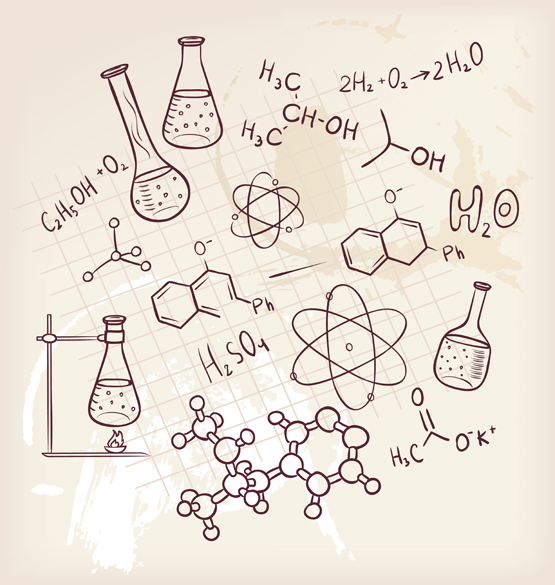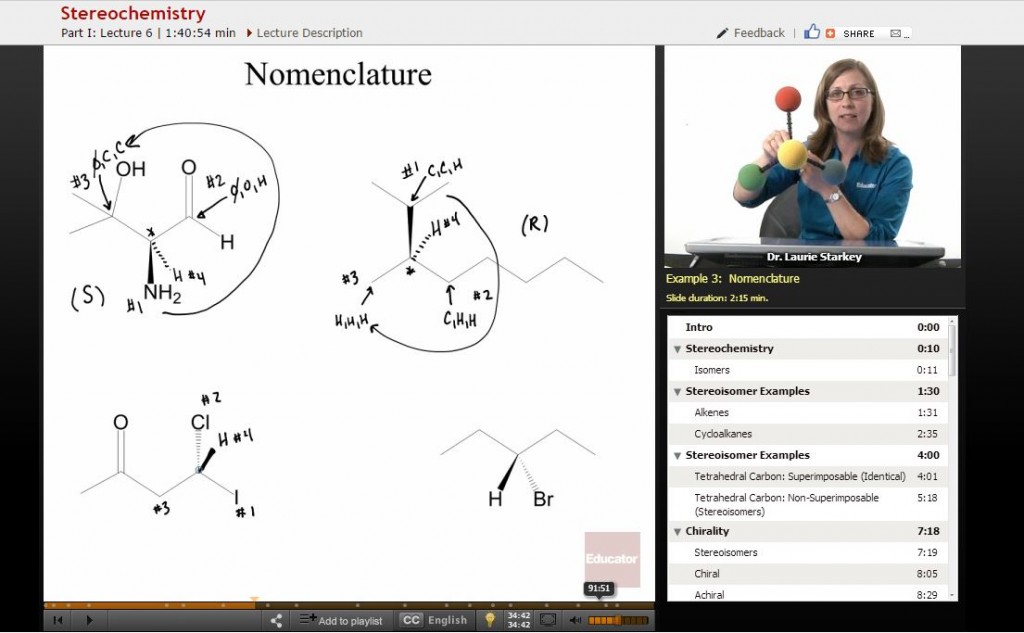Taking organic chemistry is like working for a rock star: exhausting, but worth it if you like the music. What is it, do you need it, and is it really that hard?
Pre-med and science degrees aren’t exactly known for being easy. But there are two words in particular that are guaranteed to earn a grimace from any doctor or scientist:
Organic.
Chemistry.
It may sound like something you’d pick up at the farmer’s market, but o-chem is hardly a pesticide-free walk in the park. In fact, it’s more like being a manager to a famous rock star—you get to work with some of the biggest names in chemistry, but you also have to cater to the highly eccentric whims of a temperamental diva.
What is it?
Organic chemistry is all about molecules made from carbon. It’s a pretty amazing atom. Mix it with a little oxygen and hydrogen, and you’ve got a carbohydrate, which fuels the body’s energy stores. But mix it with a little more oxygen and take away the hydrogen, and you’ve got carbon monoxide, a poisonous gas that can kill you.
This incredible versatility makes carbon the rock star of the chemistry world, and not just because of its popularity. Sure, if you make sure it has its favorite kind of jelly beans and buy it an expensive tour bus, it’ll perform like a dream—or cure diseases. But make one mistake, and it’ll start smashing guitars and making headlines in the tabloids—or explode in your test tube.
Organic Chem = Carbon’s Band Manager
Surviving organic chem means thinking like the manager of your favorite band. The problem is, carbon is a very picky creative genius. It’s capable of almost anything, and it knows it, so the environment has to be just right in order to make things happen. Buy the wrong kind of bottled water or the wrong flavor of potato chips, and you’re out of a job.
That means you need to know carbon backwards and forwards—what atoms it likes, which ones it dislikes, and how it reacts to acids, bases, oxidizers, solvents, and other chemicals.
But when you get it right, it’s all worth it, because carbon can do some pretty amazing things. It’s in skin cells, plant walls, DNA, proteins, sugars, oils, complex drugs, gasoline, and even a lot of those dang pesticides. The problem is, it can make and do so many different things that it would be impossible to learn them all.
Carbon Just Wants to Be Happy
Because it’s impossible to learn everything that carbon can do, organic chemistry teaches you the underlying principles for why carbon acts the way it does. That way, you can use what you know to coax it into the shape you want.
Mostly, carbon wants to form stable molecules where it has plenty of electrons and won’t be disturbed—it basically just wants to be happy. Acids, bases, solvents, and other molecules can disturb its creative flow, so it rearranges until it’s happy again. What makes carbon happy? Lots of things! It can be happy bonded to other carbon atoms. It can form double bonds, triple bonds, long chains, and even rings with atoms like oxygen, hydrogen, and nitrogen.
Carbon’s Greatest Hits
To learn all the things carbon can do, you’ll study the main categories of carbon molecules and their names (things like ketones and hydrocarbons), the shape of the rings it forms (rather than being flat, it forms “armchairs” or “boats”), and some of the more famous reactions of carbon that illustrate its underlying wants and needs.
These “named” reactions are kind of like carbon’s greatest hits. Once you’ve memorized several dozen of them (https://en.wikipedia.org/wiki/List_of_organic_reactions) and drawn them out over and over, you’ll have a pretty good idea of what carbon is and isn’t capable of, as well as some of the exceptions to those rules (don’t worry if you look it up and the drawings don’t make any sense—the first few weeks will be spent explaining how the diagrams work).
Do I even need it?

If you’re planning to be a doctor, not a chemist, opinions on this topic are somewhat mixed. Will you use your intimate knowledge of carbon and its habits every day working in a hospital or with patients? No, but it can be helpful to know how drugs work, and you do need organic chemistry in order to understand biochemistry, which has lots of medical applications.
Plus, organic chemistry teaches you to think about problems in creative ways (https://www.nytimes.com/2013/11/03/education/edlife/how-to-get-an-a-in-organic-chemistry.html?_r=0). It teaches you to apply basic principles to complicated problems that you’ve never seen before. It also teaches you to think about all the possibilities, not just the one you want to happen. These are all really useful skills in medicine, even if you’ll use them to help people, not pacify carbon atoms.
If you want to go into pharmaceuticals, disease research, or environmental science (designing greener fuels or pesticides, say), the decision is more clear-cut. You’ll probably spend most of your life working with carbon, so a solid foundation in organic will make life much easier.
Plus, carbon is literally everywhere. Even though all of those named reactions can be a headache and courses are notoriously tough, understanding carbon will take the mystery out of our chemical-filled world and help you separate fact from fiction when you’re trying to make healthy choices in your own life.
Chem In the Real World
What does this organic chemistry look like in a real situation? Let’s say you want to synthesize a molecule like caffeine, which looks like a two rings of carbon and nitrogen atoms with some oxygens and hydrogens thrown in. You start with some basic building blocks like dimethylurea and malonic acid, and then add catalysts, acids, solvents, and heat in the right order to make everything combine the way you want it to. Then you purify the results.
Congratulations! You now know how to make one (very, very important) molecule. But just like in music, there are millions of possible combinations. Some of those combinations sound great—and cure diseases. Others are terrible—and maybe even poisonous.
Chemists spend their time identifying potentially helpful molecules, synthesizing, purifying, and testing them, and finding cheaper ways to make them. These compounds can be anything from novel drug treatments for diseases to new cosmetics or food additives.
To be a good manager, and a good chemist, you have to know how to do more than keep the band together for one tour. You have to learn how to foster their creativity—the underlying principles that will help each member of the band be at their creative best. That’s what organic chemistry teaches you to do.
Is it all worth it?
Organic chemistry certainly has its perks. You get to study lots of interesting molecules, from caffeine to cancer-fighting drugs, and you’ll spend a bunch of time swirling colorful liquids in flasks like a scientist on TV. But surviving as carbon’s band manager means becoming an expert in its “creative demands”—a sacrifice not everyone is willing to make.
Is it worth it? It depends on how much you love the music. Ask a person who’s been given their life back by a new drug or a famous chef who specializes in modernist cuisine, and you’ll find a whole world of carbon superfans. But like any famous band, it’s not for everyone, so make sure you know what you’re getting into before you sign on for a tour!
Now what?
[box type=”success” align=”” class=”” width=””]And if we haven’t scared you away from learning organic chemistry, we’ll be here to help you every step of the way. Our in-depth video lessons cover everything you’ll need to ace your class and labs, all taught by the awesome Dr. Laurie Starkey who has over 15 years of ochem university teaching experience. You can also check out our How to Study for Organic Chemistry: 8 Tips to Survive and Thrive in Ochem article for even more help.[/box]












































